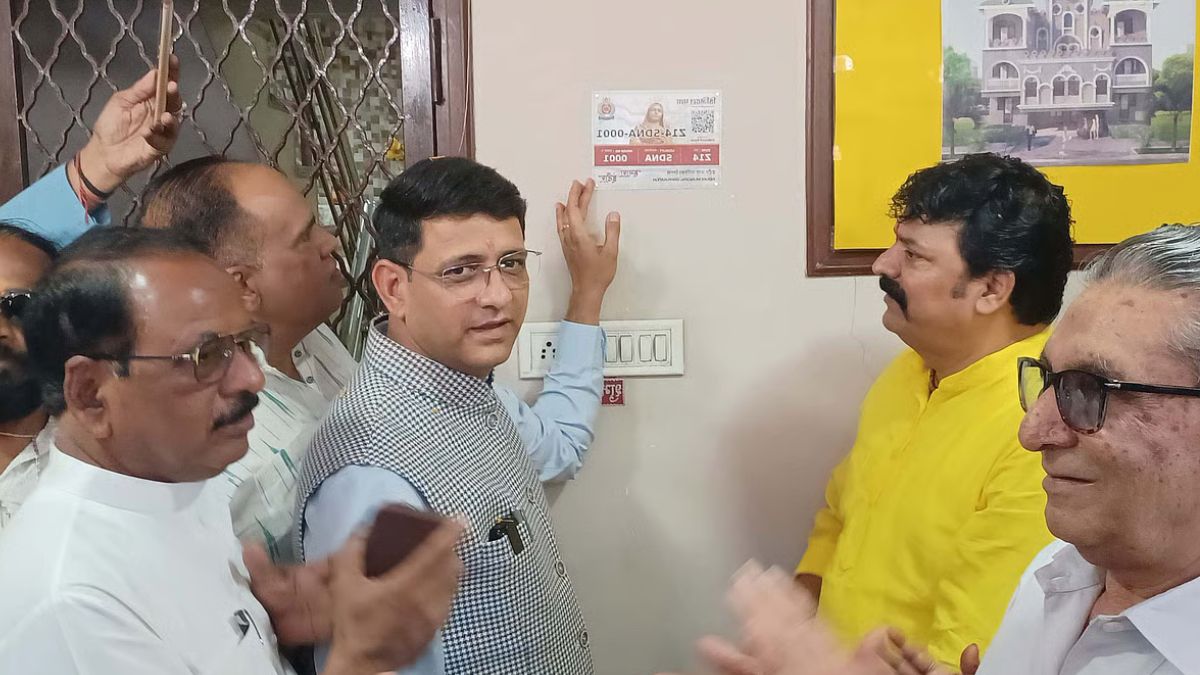In a landmark move under India’s Smart Cities Mission, the Indore Municipal Corporation (IMC) has launched the Digital House Address Project, integrating QR codes and GPS technology to replace conventional address formats. This first-of-its-kind initiative in the country is set to redefine urban administration, improve civic service delivery, and bring standardisation to India’s chaotic addressing system.
Why in News?
The project recently went live with a successful pilot in Ward 82 of Sudama Nagar, marking the beginning of a city-wide rollout. It’s the first official deployment of QR-based address plates in India, seamlessly integrated with the national Digipin system, and offers a scalable model for digital urban infrastructure. With New Delhi’s NDMC also planning a similar initiative, this marks a growing nationwide trend in digital address standardisation.
Key Features of the Digital House Address Project
- QR-Coded Plates: Every household receives a metal plate with a unique QR code.
- GPS Precision: QR codes are linked to exact geographic coordinates, ensuring accurate property identification.
- Digipin Integration: Addresses are synchronised with the central government’s Digital Postal Index Number (Digipin).
- Direct Civic Access: Citizens can pay taxes, lodge grievances, and access utility services through mobile scan.
- Smart City Linkage: Aligned with India’s Smart City and Digital India missions.
How It Works
- Installation: Digital address plates are affixed to each house.
- Scanning: QR code is scanned using a mobile device.
- GPS Reveal: Exact location and address details appear.
- Service Interface: Users can interact with the portal to pay taxes, raise complaints, or view records.
Aim and Objectives
- Simplify address identification
- Enhance service delivery
- Improve emergency response
- Digitise civic interaction
- Create data-driven governance
Background and Static Facts
- Pilot launched in Ward 82 of Sudama Nagar, Indore.
- First project of its kind in India.
- Linked with national Digipin database.
- QR-based plate serves as digital address ID.
- Supported by Madhya Pradesh Urban Development Department.
Benefits and Significance
- Service Efficiency: Faster and accurate delivery of municipal services.
- Emergency Support: Ambulance, police, fire reach without location confusion.
- Digital Governance: Real-time property mapping and grievance redressal.
- Urban Planning: Accurate data for development decisions.
- E-commerce Support: Streamlined delivery in cities with vague addresses.
Comparison – Traditional vs Digital System
| Parameter | Traditional System | Digital House Address Project |
| Accuracy | Low | High |
| Emergency Access | Delayed due to ambiguity | Immediate with GPS data |
| Data Integration | Manual, siloed | Real-time, unified |
| Utility Access | Requires physical visit | Available through digital interface |
| Update Capability | Manual | Automatic through central system |
Challenges and Solutions
| Challenge | Proposed Solution |
| Low digital literacy | Awareness campaigns, easy-to-use interface |
| Privacy and data concerns | Encrypted storage, secure logins |
| Integration complexity | Partnering with national tech and postal agencies |
| High implementation cost | Phased rollout and private sector participation |



 Gender Budgeting In India Jumps 11.55%: ...
Gender Budgeting In India Jumps 11.55%: ...
 NGT Gives Nod to ₹81,000 Crore Great Nic...
NGT Gives Nod to ₹81,000 Crore Great Nic...
 Highways That Help Honeybees? NHAI’s ‘Be...
Highways That Help Honeybees? NHAI’s ‘Be...








